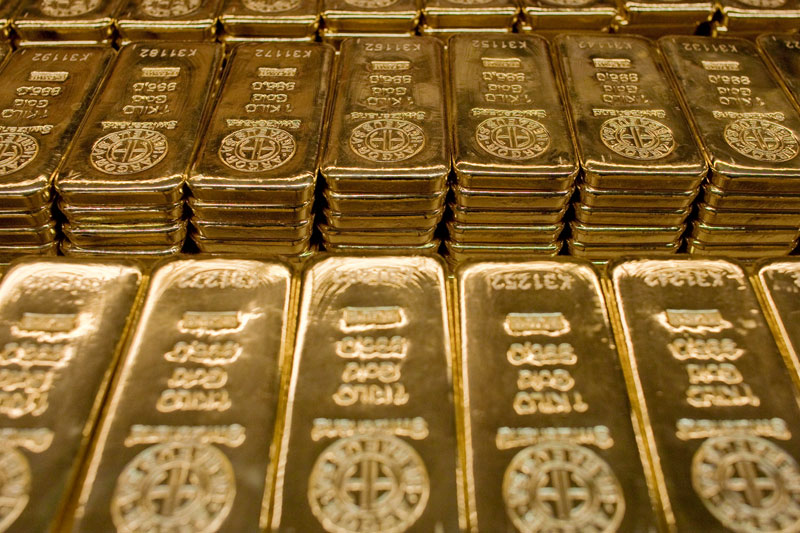
Investing.com – Gold prices jumped Tuesday, extending recent gains as heightened geopolitical tensions in Syria and a selloff on Wall Street fueled safe haven demand.
At 4.44 p.m. ET (21:44 GMT), rose 1.3% to $2,693.27 an ounce, while rose 1.3% to $2,721.30 an ounce.
Gold demand underpinned by geopolitical tensions
Spot gold rose at the start of the week after heightened tensions in the Middle East sent traders into safe havens.
Rebel forces took Syria’s capital Damascus over the weekend, ending the reign of President Bashar al-Assad, who fled to Russia.
Syria’s regime change has ties to the Sunni Islamic sect, potentially putting the country at odds with Iran. Israel was also seen launching an offensive against Syria.
Syria’s situation put investors on edge over a potential escalation of geopolitical tensions in the Middle East, pushing them into traditional safe havens such as gold.
Anticipation of several key economic cues in the coming days are expected to keep investors on edge. Central banks in Canada, the European Union and Switzerland will decide on interest rates this week, followed by the Federal Reserve next week.
Other precious metals were less upbeat than gold. fell 0.6% to $948.15 an ounce, while edged 0.1% higher to $32.657 an ounce.
Copper steadies from stimulus-driven rally
Benchmark on the London Metal Exchange fell 0.1% to $9,241.00 a ton, while February fell 0.1% to $4.27 a pound.
Both contracts rallied 1.5% on Monday after China’s top political body pledged to loosen monetary policy and dole out more targeted stimulus measures. The pledges ramped up hopes that economic growth in China will improve, in turn boosting its appetite for commodities.
Chinese trade data also offered some positive cues. While overall and read weaker than expected for November, China’s copper imports raced to a one-month high.
Focus this week is now on China’s Central Economic Work Conference, which is set to begin on Wednesday.
(Ambar Warrick contributed to this article.)

